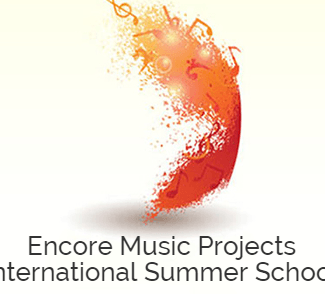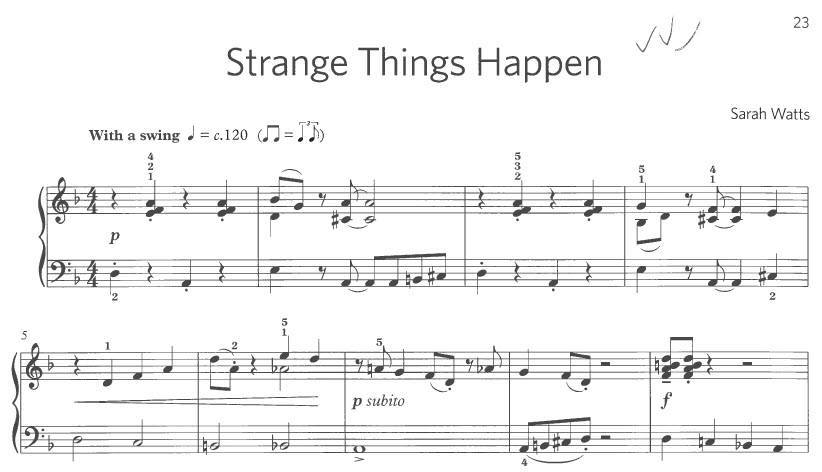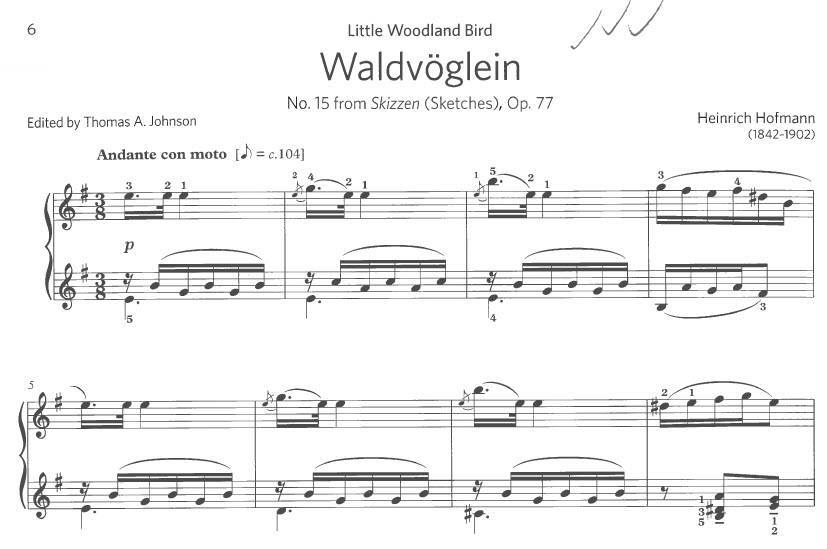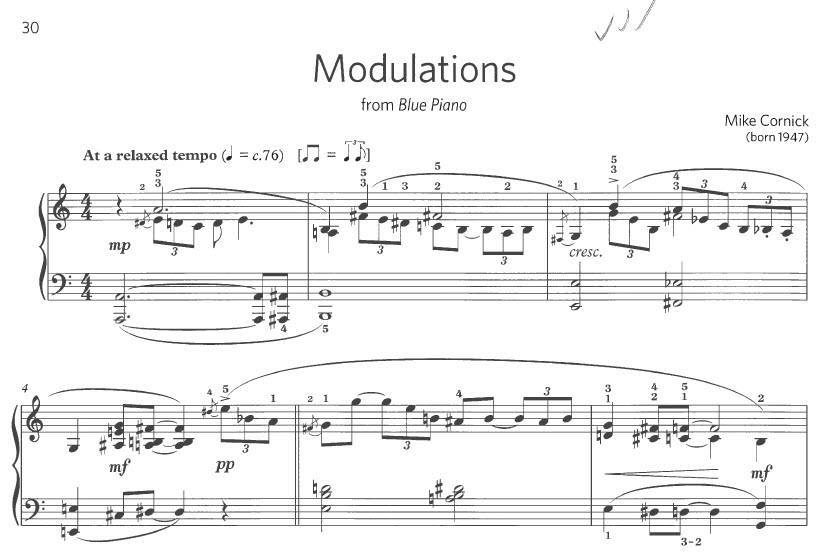Finding good collections of music at graded levels can be quite a challenge and so I was really excited to explore and review the ABRSM’s Encore Collection which was released last year.
I actually can’t believe how long it’s taken me to get into these books – lots of things have unfortunately taken priority since they were released early-mid last year. However, now that I look back, I wish I’d explored them earlier as there are so many great options for so many of my students!
It doesn’t matter if you teach the ABRSM syllabus or not, in my opinion, these are must-have collections for modern teachers as they cover such a wide variety of styles and genres exploring both new and old works from composers all around the world.
Please keep in mind that I was in no way compensated for this review and all thoughts are my own.

Encore is a collection of four books, published by the ABRSM and featuring their favourite exam pieces from the last few years packaged by grade.
Each book contains a wide variety of repertoire including classic baroque, classical and romantic favourites paired with many new and exciting pieces that I’d never heard of previously.
The books will be a great resource for students of a variety of levels, regardless of whether you’re teaching the ABRSM (or any other exam syllabus) or not.
There are some great teaching notes for each piece, the typesetting is clear and functional and altogether, they will be a great addition to any student or teacher’s library.
Karen Marshall has done an excellent job of curating a mix of pieces that teachers and students will love.
These days, collections that just feature the standard ‘classical’ repertoire aren’t going to cut it with today’s teachers and students. There’s just too many out there already and you can get most of it for free on imslp.org anyway – why purchase a collection?
When I find a new collection these are the things I look for:
That’s exactly why I love Encore!
Whilst you will find many of the really well-known “standards” of the repertoire, (eg. Burgmuller’s Ballade, To a Wild Rose, Musette in D, Bach P&Fs, Gymnopedie No 1, etc.), you’ll also find heaps of new surprises.
What this means is that, regardless of which exam board you may be teaching, you’ll find many of the pieces you need in these collections. This can be great to use as supplementary music or for actual exam pieces.
I’m also really impressed by the teaching/performance notes that you’ll find under each piece. Here’s an example from a piece in Book 1:

Teaching notes under Encore pieces – great suggestions and talking points for teachers 🙂
There are three aspects to the teaching notes:
Because these are so succinct, they are very easy to use and helpful for students and teachers alike.
Karen has picked-out the technical and musical challenges very carefully and tied them to concrete teaching suggestions. These will be great for teachers approaching these for the first time and for beginning teachers.
The four books are in paired grades:
This means that these books will remain valuable for students for at least two years of study and probably longer.
Here’s an example of the music you’ll find in Book 1 (Grade 1/2) (I’ve coloured my favourites):
As you can see from my highlights, lots of these pieces resonated with me (and will resonate with your students)… and they were just my favourites!
To find the contents of the other books, please head to the ABRSM’s Encore page, click on the book you’d like to explore and then look for this drop-down menu:

Use this drop-down menu to access the list of pieces in each book
Related >>> How to find cool new repertoire for your students
When I review a new collection of music, I tend to sit down and sight read straight through, allocating pieces either 1, 2 or 3 ticks depending on how much I liked playing the music.
Needless to say, there were a lot of ticks for each book in the Encore Collection!
The following are a selection of my “3-tick” pieces that are found in these collections. These are all totally new pieces for me – one of the reasons I LOVE exploring new repertoire.

Strange Things Happen from Book 1 (Grade 2)

Waldvoglein from Book 2 (Grade 3)

Modulations from Book 3 (Grade 6)
While I’d love to share more examples, I’d really just suggest you invest and check them out yourself – you’ll love the mix.
Encore is perfect for:
If you’re looking to get copies of Encore, feel free to use the links below. It’s great to see that the ABRSM are keeping costs reasonable, with each book available for under $US10. I wish more publishers took this approach – I guarantee they would move more stock!
Let’s make a list of our all-time favourite music compilation books for teaching.
What’s top of your list!?

Alice says:
I enjoy the RCM’s Celebration Series — especially the new 2015 edition.
Daniel @ Grow Your Music Studi says:
Tim, really like the article…
Regarding the books, I’m a big fan of that “teaching notes” section!
Thanks for the recommendation on these.
Tim Topham says:
Cheers Daniel – thanks for your comment 🙂